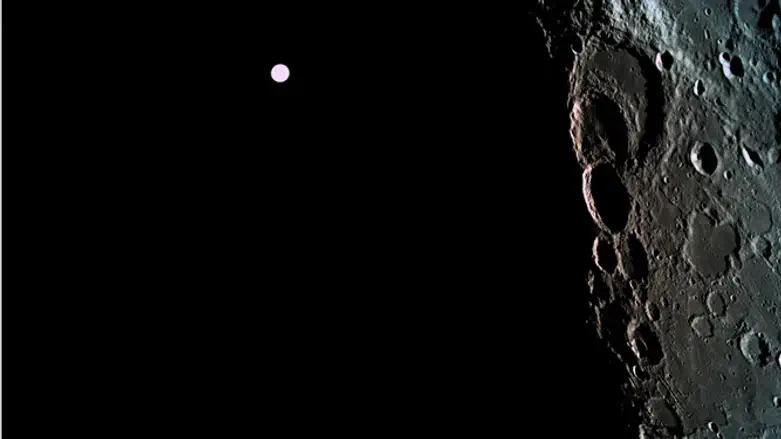
Torah reading: B'reshit
BEFORE CREATION
The first three words of the Torah are "B’reshit bara E-lokim", "In the beginning God created the heavens and the earth".
Bet Shammai says He created the heavens first, Bet Hillel says the earth came first, and the sages say – Chagigah 12a – that both were created at the same time.
The word "B’reshit" is difficult. Does it mean "firstly", "in the beginning"? If so, it should be "Barishonah".
There is a different opinion, supported by Rashi and Ibn Ezra, which understands the verse as "When God began to create" – parallel to Gen. 5:1-2, which refers to "b’ro E-lokim".
There was a series of stages. First there was "tohu vavohu", dark waste and wildness (Robert Alter’s translation calls it "welter and waste"), then God said, "Let there be light", which means that He imposed order on the strange mixture.
This suggests that Creation was preceded by chaos, so history began before Creation with a "BC" (Before Creation) era. God imposed order on a disorganised primary substance. But how did that formless substance come to be there?
*Without* a belief in God we cannot explain "tohu vavohu"; *with* a belief in Him we can say that it was something which He Himself had created.
The rabbis say that God made many worlds before settling on one that pleased Him (Gen. Rabbah 3:9). According to Rabbi Yochanan a thousand earlier worlds were discarded by God (Shir HaShirim Rabbah 5:10).
The Vilna Ga’on regarded the Creation described in Genesis 1 as the definitive beginning of history.
ETHICAL EVOLUTION
Whether Darwinian views of evolution are tenable is vigorously debated.
Many aspects are debated including a possibly parallel process of ethical development. Does the survival of the fittest apply to ideas and social structures?
One of the major essays on the subject is a contribution by Dr Daiches Raphael to a book called "A Century of Darwin", edited by SA Barnett.
Dr Raphael wants to know whether human ethics are a product of evolution; does evolution direct or indicate the future development of ethics, and does ethical development have an influence on the future of evolution?
A major analysis of the subject came from Teilhard de Chardin, who believed that over time, the ethical spirit of man would refine itself and ethical primitiveness would recede and give way to good order.
GOD IN THE GARDEN
Genesis 2:8 says that the Lord God planted a garden.
There were trees that were "pleasing to the sight" and trees that were "good for food". In the middle of the garden was the tree of life, and "the tree of knowledge of good and evil", two trees not found elsewhere (Ibn Ezra).
Adam and Eve lived in the garden. In the garden God Himself could be heard.
From the poetical point of view the garden was a major indication of the existence of God, not merely as a source of beauty, but as proof that the spirit of man should never despair.
Small things grow, and even when one year’s growth is unsuccessful, a person should never lose hope.
Sforno says the trees of life and moral knowledge warned man to be careful in his choice of physical and intellectual pleasures. The garden is a stage in man’s moral development. The garden that is the world is full of wonderful things; man must learn how to handle them.

Rabbi Dr. Raymond Apple was for many years Australia’s highest profile rabbi and the leading spokesman on Judaism. After serving congregations in London, Rabbi Apple was chief minister of the Great Synagogue, Sydney, for 32 years. He also held many public roles, particularly in the fields of chaplaincy, interfaith dialogue and Freemasonry, and is the recipient of several national and civic honours. Now retired, he lives in Jerusalem and blogs at http://www.oztorah.com